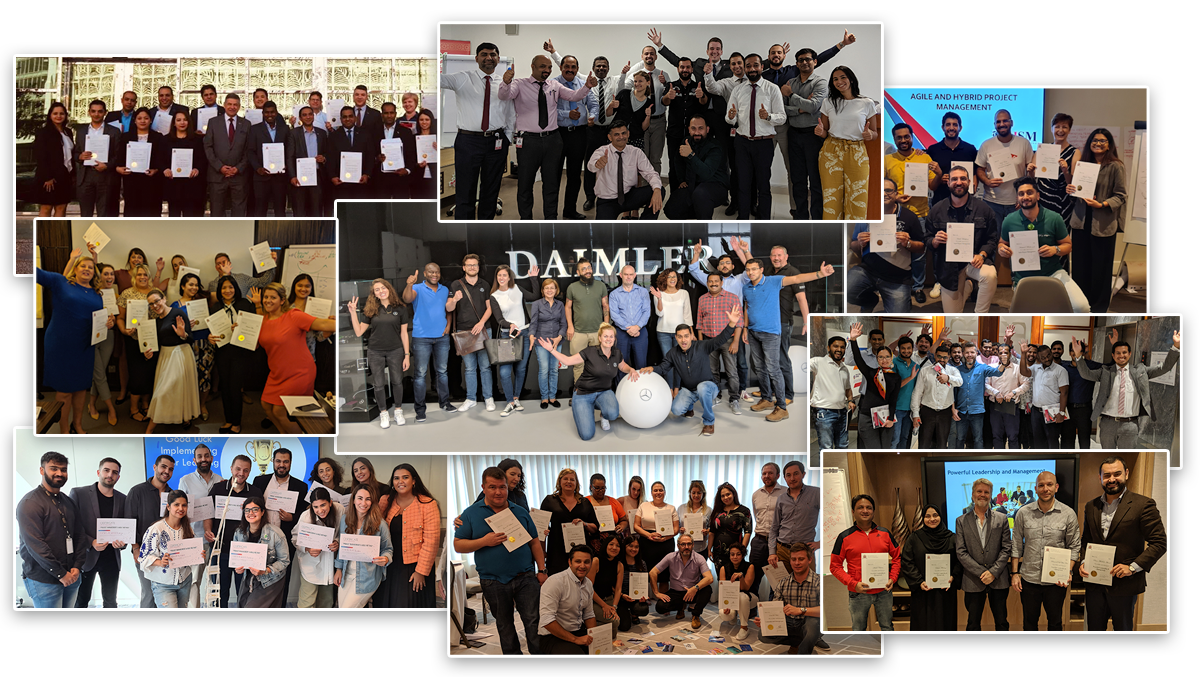Procrastination is something we all do to a certain degree.
No matter how organised you are, there are ways in which you could be more efficient.
Procrastination is closely related to time management. It can harm your mental and physical wellbeing and lower the quality of your work.
In this guide, we explore why chronic procrastinators delay tasks and how to break the cycle.
Why Trust ISM Training?
Over 20,000+ graduates
Have advanced their career with ISM Training
89%
of ISM graduates say our course helped them get a promotion.
76%
said that their training helped then increase their salary.
97%
of graduates want to study more of our courses.
Our graduates are working in some of the biggest companies worldwide, companies like...






What is procrastination?
Procrastination happens when you delay doing something until the last minute. Instead, you might engage in unproductive activities, like watching TV or scrolling on social media.
In simple terms, it is a state of being prevented from following through with your plans.
Procrastination is more common than you think. In fact, 88% of workers admit they have a tendency to procrastinate.
What are the common effects of procrastination?
Unfortunately, procrastination does not only mean wasting your time.
Studies have found that it has a series of negative effects on both your psychological and physical health.
Some of the effects of procrastination on health include:
- Unhealthy lifestyle behaviours, such as drinking alcohol too often
- Reduced life satisfaction
- Heart disease
- Depression
- Higher levels of stress and anxiety
Beyond just lost time, procrastination can take a serious toll on both mental and physical wellbeing, making it essential to address and overcome this habit.
Start your course today!
We offer a comprehensive curriculum that covers all of the essential topics. Our experienced instructors will provide you with the support and guidance that you need to succeed.
Why do people procrastinate?
If you already know you procrastinate, but want to find the reason behind it, the answer is simple.
People procrastinate because their drive to delay is stronger than their drive to act.
This is mostly caused by time inconsistency. Unfortunately, the human brain tends to prioritise immediate rewards over future benefits.
For example, instead of going to the gym, you might choose to dine at a restaurant.
Enjoying a meal out with friends can be pleasurable, but if you stay committed to your gym routine, you will begin to see its benefits in a few months.
Similarly, planning for retirement at a young age can be challenging.
While you might understand the importance of saving for retirement in your 20s, it can be difficult to prioritise it over immediate expenses.
This is because envisioning financial struggles 50 years into the future is not always easy.
We let our graduates do the talking...
How to stop procrastinating now
To stop procrastination, you need to move your future self to now.
Here are a few strategies to deal with procrastination:
Make the task doable
If you set yourself unrealistic goals, you are more likely to fail.
Instead, focus on clear tasks that do not seem too daunting.
For example, instead of planning to go for a run every day, start doing it once a week.
Instead of aiming to read 30 books a year, commit to reading for 10 minutes daily.
You will observe two benefits of making your tasks doable:
- You will feel better for achieving your tasks
- Your progress might be slow, but you are taking steps to achieving your goals
Starting your day with a quick, easy task gives a sense of accomplishment and reduces procrastination.
Feel the consequences
It might be difficult to focus on consequences if it is difficult to envision what they might be like in a few years’ time.
For example, if you do not go to the gym, you might not regret it as you cannot envision what the future will bring.
However, if you plan to join your friend at the gym session and you do not turn up, you will look unreliable.
Getting goals aligned with somebody else might be a good idea.
A Colorado State University study found that being accountable to someone makes you 95% more likely to succeed.
Commit to a goal alongside someone else to increase your accountability and boost your chances of staying consistent and achieving success.
Change the environment
To overcome procrastination, minimise distractions in your environment—or remove yourself from it.
If you tend to procrastinate while watching TV, try hiding the remote in a drawer to reduce temptation.
Setting time limits on social media can help curb mindless scrolling, and wearing noise-cancelling headphones at work can block out distractions from colleagues.
If these steps are not enough, take extra measures to stay focused, such as:
- Turning off your phone.
- Placing it in a drawer.
- Locking the drawer.
- Storing the key in another room.
By eliminating distractions, you can stay focused and get more done.
This or nothing
Give yourself a clear choice: either complete the task or do nothing at all.
For example, if you do not want to write a report, then simply sit and do nothing instead.
Avoid rewarding yourself for unfinished tasks—boredom can be a powerful motivator, pushing you to act.
And most importantly, reward yourself only after the task is done.
The less decisions, the better
Planning your day in advance reduces the chances of procrastination.
For example, scheduling a gym session with a friend makes you less likely to cancel, and preparing your lunch ahead of time encourages healthier eating at work.
By staying organised, you free up time for important tasks and maintain the energy to focus on what truly matters.
Looking further ahead?
View our course calendar in full
Overcoming procrastination with ISM
Procrastination is one of the biggest barriers to productivity, leading to last-minute stress, missed deadlines and decreased efficiency.
ISM’s stress and time management course helps professionals tackle procrastination with practical strategies. Participants will:
- learn to prioritise tasks,
- set realistic deadlines, and
- break projects into manageable steps to stay focused and in control.
By overcoming procrastination, employees can reduce stress, boost efficiency, and achieve a better work-life balance. Since 1998, ISM has empowered professionals in the UAE to succeed in fast-paced work environments.
Take the first step towards reducing procrastination. Contact ISM Dubai today to learn more about our time and stress management course. Stop procrastinating for good!
5 FAQs
Procrastination is delaying important tasks for less meaningful activities, like watching TV or scrolling social media.
It prevents you from following through with your plans and can negatively impact productivity and well-being.
People procrastinate when the urge to delay outweighs the motivation to act.
This happens because of time inconsistency. The brain prioritises instant pleasure over long-term rewards—like choosing a night out over a workout.
To avoid procrastination and reduce workplace stress, you can:
- break tasks into smaller steps,
- set clear deadlines, and
- eliminate distractions.
Planning your day in advance and using accountability can also help you stay focused and productive.
Some strategies you can take to stop procrastinating include:
- break tasks into smaller, manageable steps,
- set realistic deadlines,
- create a structured schedule
- change your environment,
- reduce distractions, and
- attend a procrastination course.
ISM’s stress and time management course teaches practical techniques to prioritise tasks, manage deadlines, and stay focused.
With strategies designed for the UAE’s fast-paced business environment, you can boost productivity and reduce negative feelings.
Join 1000's of individuals and teams certified by the Institute of Sales & Marketing

Our trending courses
At ISM, we combine top-tier training courses with industry-leading instructors.
View all coursesTestimonials from Our Valued Clients
Discover the transformative experiences our clients have had with our training programs.
Hear directly from those who have unlocked their potential and achieved remarkable success.

Some other providers courses can be quite a chore! However, I felt fully engaged and excited by all the new selling tools I have...

Daniel Graham

Instead of just telling me what to do, they showed us how to do it as well as why to do it. They used real-life experiences...

Sujit Nair

The training was delivered in an easy to absorb manner and focused on all the key areas...

Paul Baker CFP



